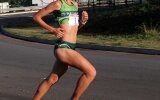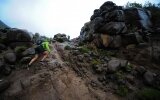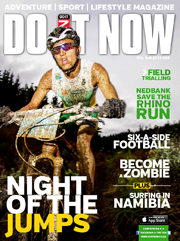- Magazine
- #readityourway
- Weekly Stories
- #shareyourstory
-
Adventure
- Abroad Travelling
- Africa Travelling
- Events
- Expos & Shows
- Festivals
- Fishing
- Free Diving
- Gliding
- Horse Riding
- Inspiring People
- Islands Travelling
- Kite/Windsurfing
- Motorbiking
- Motorised Water Sports
- Mountaineering
- Mountain Biking
- Off-road 4x4
- Off-road Motorbiking
- Paddling
- Performance Driving
- Photography
- Rock Climbing
- Rollerblading
- Sailing
- Scuba Diving
- Skateboarding
- Skydiving
- Snowboarding & Skiing
- Surfing
- Swimming
- Trail Running
- Wakeboarding
- Waveski Surfing
-
Sport
- Adventure Racing
- Fishing
- Free Diving
- Gliding
- Health & Fitness
- Horse Riding
- Inspiring People
- Kite/Windsurfing
- MMA
- Motorbiking
- Mountain Biking
- Multi-sport
- Off-road 4x4
- Off-road Motorbiking
- Paddling
- Performance Driving
- Photography
- Road Cycling
- Road Running
- Rock Climbing
- Rollerblading
- Sailing
- Scuba Diving
- Skateboarding
- Skydiving
- Snowboarding & Skiing
- Surfing
- Swimming
- Rugby
- Trail Running
- Triathlon
- Wakeboarding
- Waveski Surfing
- Lifestyle
- Calendar
Running the Cambist Washie
Words: Glyn Williams ǀ Photos: www.incrediweb.co.za
Category:
Road Running
Beyond the Comrades there is the loneliness through the night of the much longer distance runner. There is the Cambist Washie, from Port Alfred to East London, for those who want to test their physical and mental strengths to the limit of running through the night, all day, and then sometimes into the night again.
The Washie is not so much a race as survival. Some run it once, but never again. And some complete its 160 kilometres of coastal undulations that include the descents and climbs of three major river valleys either to become uncompetitive for two years, or quit road running completely. There are also the elite, who defy the sometimes speech-eradicating pain and breakdown of bodily defenses, to do it again - and again.
The Washie, South Africa’s oldest 100-miler, which moves into the dimension of another 70 kilometres where the Comrades come to a halt, may not be the ultimate challenge, but it comes close with the tremendous demands made upon the body and mind in the compressed time limit of 26 hours.
With no trace of humour, the official brochure refers to the Comrades as a vital training run. It is, as one woman competitor said, as she shuffled up to collect her awards at a Washie prize-giving, her blistered and battered feet encased in sheepskin slippers, a matter of survival.
Gears for the long haul of the Buffalo Road Runners 37th event will engage again at full moon, at 5 p.m. on Friday, 19 July 2013, when some of the country's hardiest men and women set off from the Halyards Hotel, Port Alfred. Cut-off time and place is the Buffs Club at 7 p.m., Saturday, 20 July 2013.
The great names of South African ultra distance running adorn the race records. The amiable and humorous - and almost incredibly gritty - Dave Park, formerly of East London and now retired in Port Elizabeth, completed 12 Washies, coming second three times and third twice. The legendary John Ball, of East London, who ran across the USA from Los Angeles to New York, completed seven.
The sparrow-like Manie Saayman, from Spectrum, was a giant of the Washie, winning it an incredible five times, and setting a time of 13 hours 13 minutes and 13 seconds in 1982. No one got anywhere near that, with some of the Washie winners’ times looking pedestrian by comparison, until last year.
Then 40-year-old Johan van der Merwe, who trained hard, did his research on the race and route, got a good seconding team together, came home last year in 13 hours 7 minutes and
50 seconds.
The second man home came in more than two-and-a-half-hours later. Johan also became the first Washie winner to write his own full story of how he did it, which was published exclusively in the K, a monthly newsletter published by the author of this article. But another prominent Washie runner and long-time convenor of the ultra, Danny Holton, has pointed out that Manie had to traverse the considerable descent and pull up of the Chalumna River valley, while Johan had the lesser task of crossing a bridge built since 1982. It sets the stage for a continual Washie debate that may never be adequately settled.
Why do apparently sane men and women do it? The question was put to Dave Park, who has written eloquently of taking part in that first pioneering run: after all, no one had previously organised a 100-miler in South Africa. He said, perhaps tongue in cheek and with his famous sense of humour, that the bulk of the Washie field can be divided into two distinctive groups, the needy and the greedy.
Among the needy are those with an insatiable urge to attempt a 100-mile run. They would not rest until they had got it out of their system, despite sound advice that it would be unwise to run such a distance; the corollary was that advice that cost nothing was worth nothing.
Such needy runners would realise, perhaps at noon on Saturday at Kidd's Beach, with 40 km still to go, that their family and friends not only had old-fashioned common sense, but knew a lot more about ultra distance running than they did.
Dave Park said the greedy were afflicted with a far more serious ailment, which only time could cure. Advice, education or therapy were of no use. They were runners who had completed one or more Washies, but again shelled out good money knowing full well what awaited them once the euphoria at the start wore off.
The camaraderie of the first few hours would wear very thin in the dark, cold mid-winter night between the Fish River and Keiskamma cuttings. For those runners, the lure of a permanent Washie number (five runs) or even the coveted bronzed shoe awarded on completion of ten journeys, totally clouded their better judgment. Anything that sounded like good advice only made them more determined to soldier on.
"Until such time as the body refused to respond to the mid-winter urge, there was no cure for the Washie," Dave Park said. For some, it must be done; for others, it must continue to be done.
And beyond the Washie? This year, two legends of the race, Eric Wright, who has completed 24 journeys consecutively since 1988, and Hazel Mioller, who has gone the distance six times, will leave the Buffs Club on Thursday, 18 July, at 3 p.m., and run to the start of the race in Port Alfred. They plan to attend the race briefing and then run all the way to the finish in East London.
dinFO:
The Washie was born when Lionel Whitfield, of the Buffalo Club, consulted the then Buffs Chairman, Vyv Rex, in 1977 about inaugurating and sponsoring a sporting event that would bear the name of his late father, George Washington - known as "Washie". There were 21 starters from East London and 12 finishers in Port Alfred.
Related content
|
|
|
|
|
|
|
|
|
|











